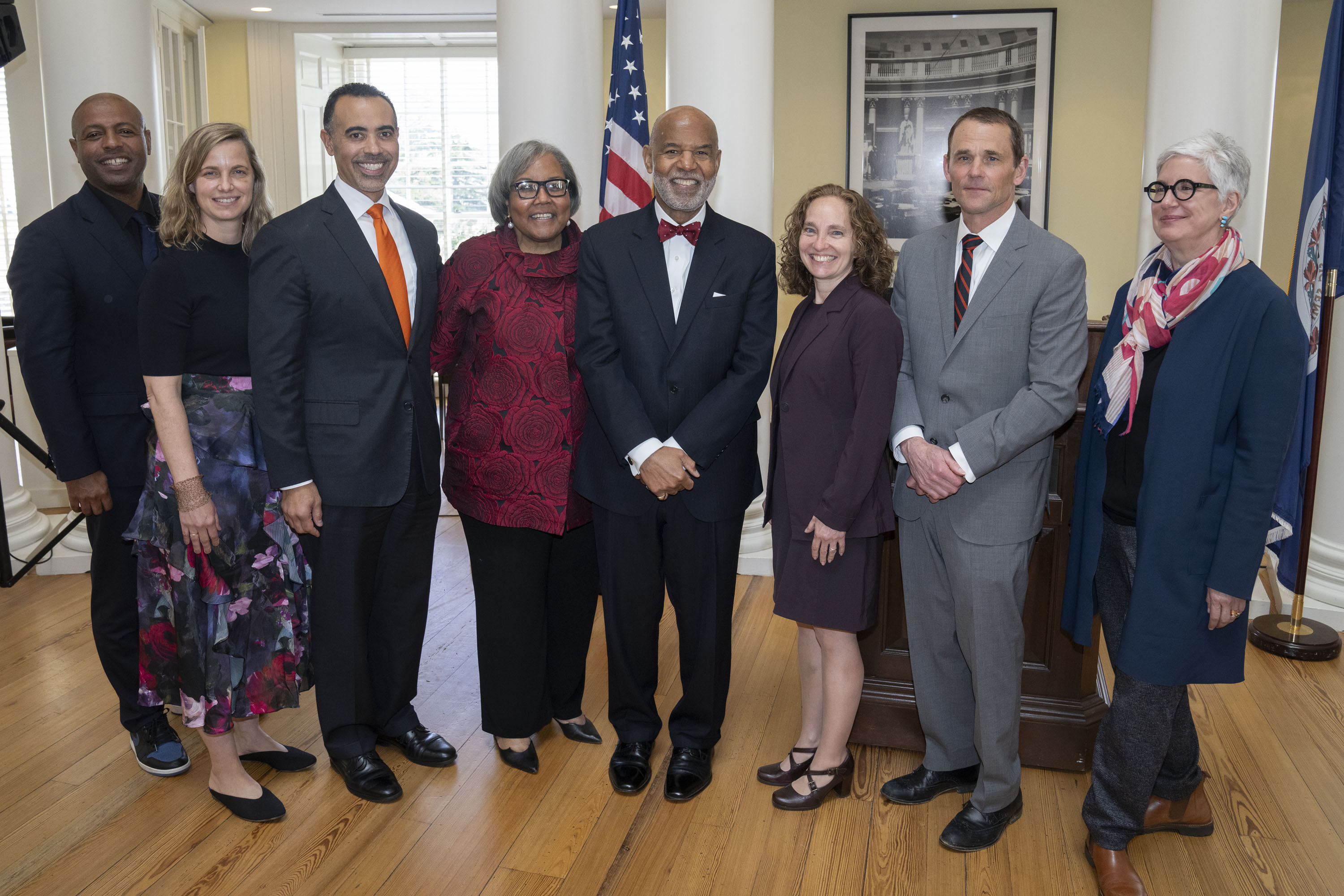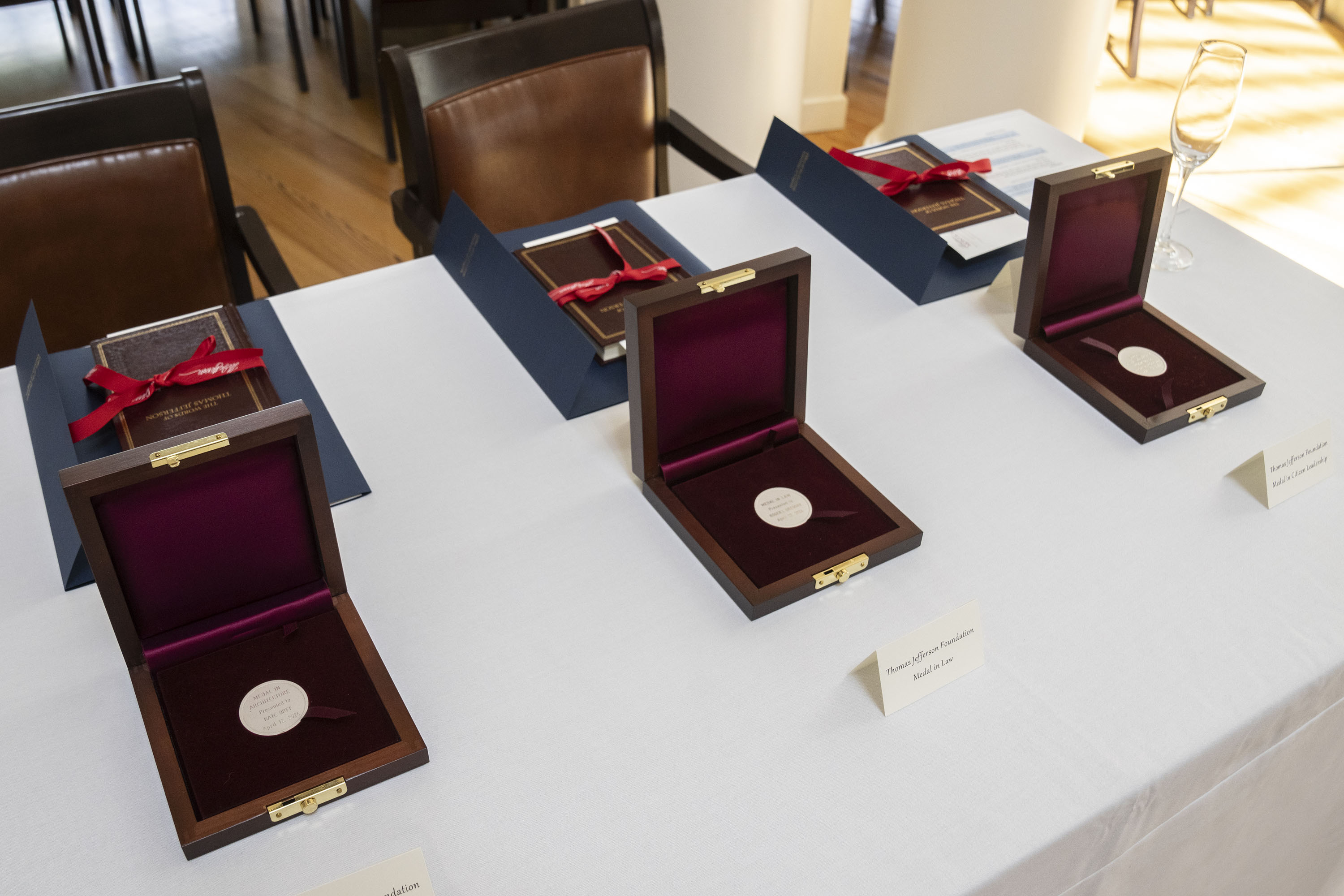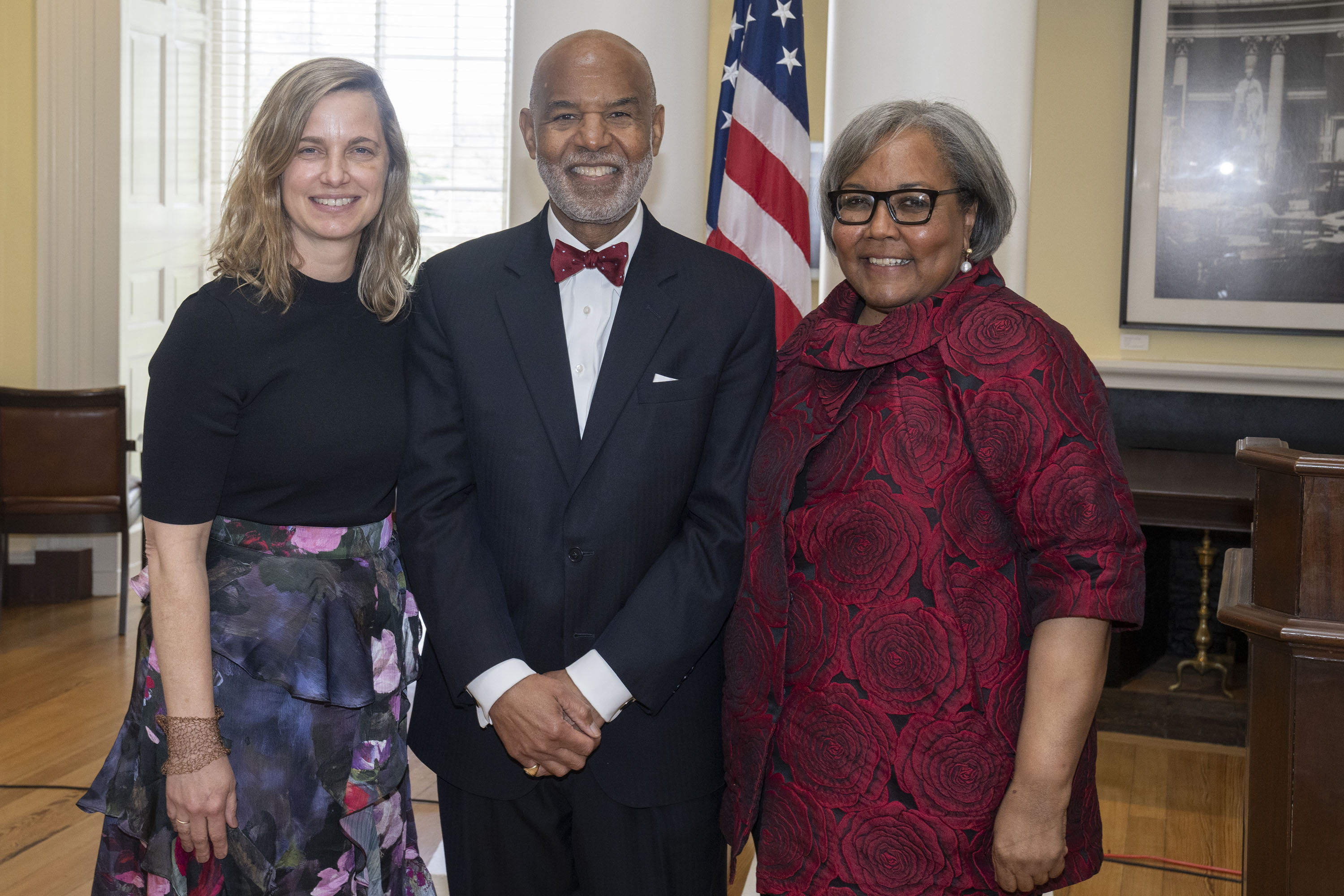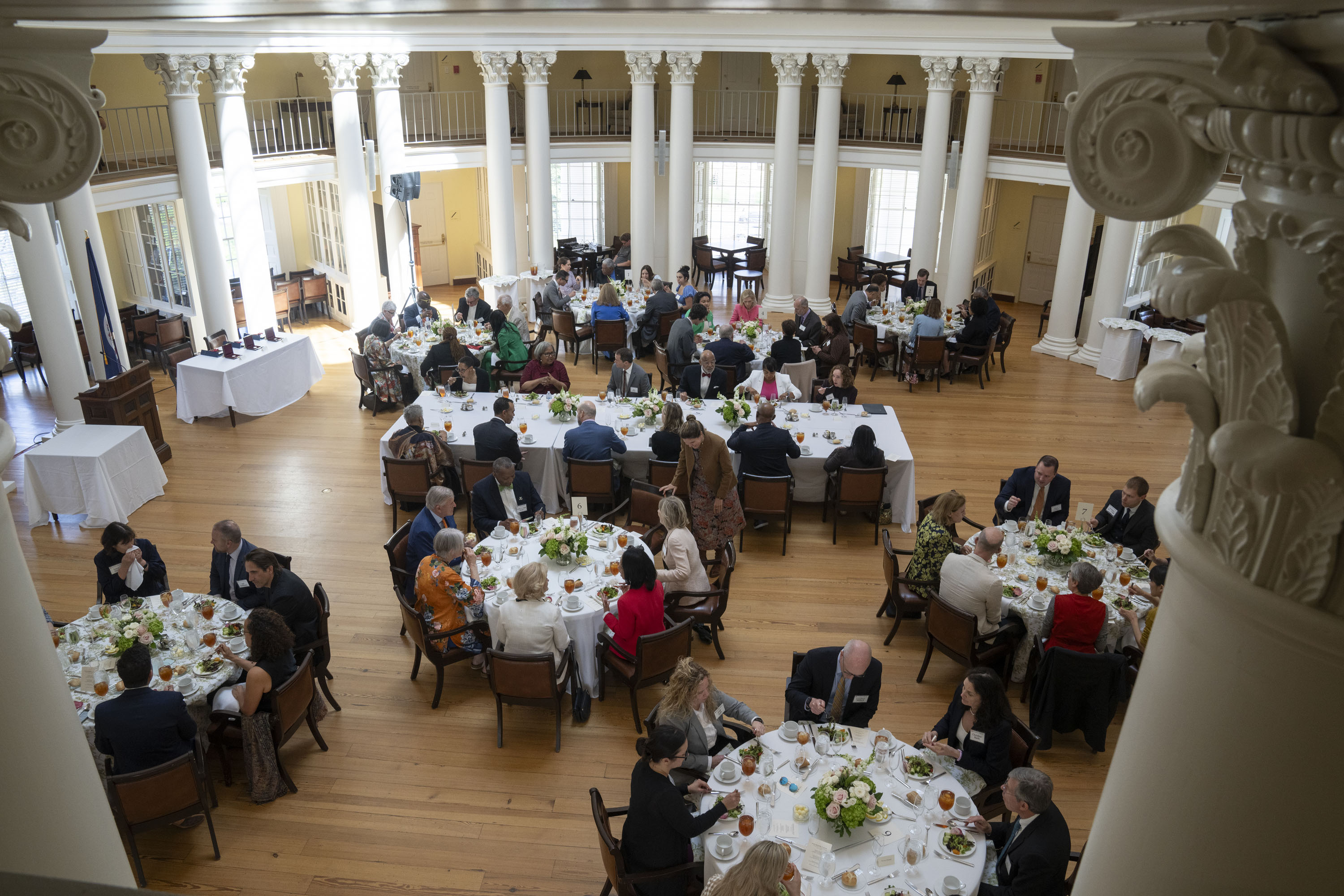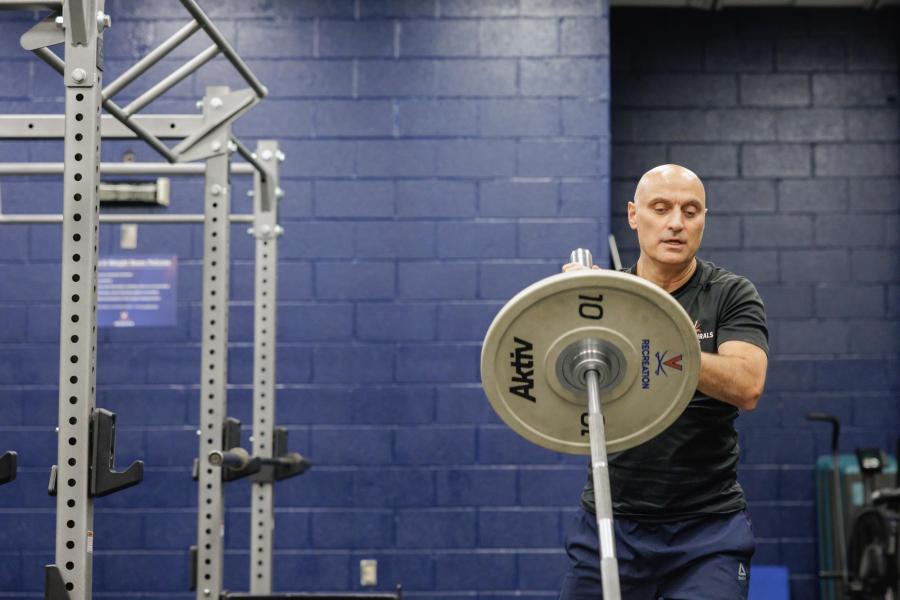“First, it is an opportunity to reflect on Jefferson’s legacy, and the mission and ideals that UVA has worked to uphold for more than 200 years,” Ryan told a Dome Room audience of faculty, deans and dignitaries, including former Virginia Gov. L. Douglas Wilder.
“And it’s an opportunity to ask ourselves what more we can do to live out the University’s mission as Jefferson visualized, which included, importantly, preparing leaders to sustain a thriving democracy – a mission that is as important today as ever,” Ryan said.
Thomas Jefferson Medals are bestowed upon honorees in endeavors in which Jefferson excelled and held in high regard: architecture, law and citizen leadership.
The Jefferson Medalist in Law is Chief Judge Roger L. Gregory, the first African American to serve on the U.S. Fourth District Court of Appeals and the first to serve as a chief justice. He is also the first judge to be appointed to a federal appellate court by two presidents of different political parties, President Bill Clinton, a Democrat, in 2000 and President George W. Bush, a Republican, in 2001.
After graduating from the University of Michigan with his law degree, Gregory founded a law firm in Richmond with Wilder.
The Jefferson Medalist in Architecture is Kate Orff, a 1993 UVA graduate and the founder of SCAPE, a landscape architecture and urban design studio firm in New York that employs more than 80 people.
She is perhaps best known for creating the Living Breakwaters on the south shore of Staten Island, a project envisioned after Superstorm Sandy devastated the area. The idea was to create a shoreline more resilient to storms and their increasing intensity. Living Breakwaters and her firm’s other coastal projects have become frequently cited models for designing landscapes in areas most affected by climate change.
The Jefferson Medalist in Citizen Leadership is Julieanna L. Richardson, the founder and president of a national nonprofit educational institution called The HistoryMakers that has curated, presented and preserved on video the histories of thousands of African Americans.
The Chicago-based organization describes itself as “the digital repository for the Black experience.”
